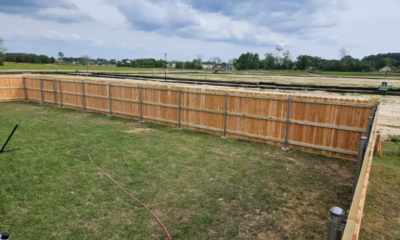Business
5 Business Ideas To Manage With A Warehouse

Have you ever heard of industrial parks? Well, if you haven’t, let’s discuss the basics.
An industrial park is a section of a city designated for industry rather than residential or commercial use. Oil refineries, ports, warehouses, and distribution centers are some industrial parks and business models. Tax incentives, such as tax increment financing, are available in certain industrial parks to encourage firms to move there.
Behind Industrial Parks
Industrial parks provide supporting features and services that will assist the businesses that will use the space. Ports provide access to commodities and manufactured items transported to major industrial centers for distribution.
Industrial parks may eventually incorporate transportation, storage, and manufacturing on the same site. Chemical companies, steel mills, food and beverage processors, plastic manufacturers, and airports are all possible targets.
For example, an industrial park near a large harbor will include a railroad and multiple motorways with amenities to provide main routes for the flow of trucks and other heavy vehicles transporting commodities.
Cold storage facilities, engine part manufacturing firms, and distribution warehouses will be among the enterprises located in this industrial park.
Importance of Industrial Parks
Industrial parks include additional services and amenities that benefit the businesses that rent space there. Commodities and completed goods can be transported to large industrial centers for distribution through ports. The cargo is transferred to trucks and train wagons using cranes and other heavy lifting equipment available at the industrial park.
Within the industrial park, freight can also be kept in warehouses. Manufacturers located in an industrial park with port access can obtain the resources they require fast. With this work efficiency, the business and work opportunities of the place grow faster, elevating the economy of the surrounding neighborhood.
Here are 5 different business models you could build in industrial property:
Logistics
A logistics park is an industrial area dedicated to the storage, administration, distribution, and transportation of various commodities. Furthermore, businesses frequently use logistics parks to assemble, package, process, or manufacture items. Companies can use logistics parks to operate and service local, regional, or worldwide markets.
Having a logistics business in an industrial park can serve other surrounding companies’ need of storage, shipping, and distribution needs.
Information Communication Technology
Information Communication Technology or ICT is a technological revolution in handling communication processes such as telecommunications, broadcast media, intelligent building management systems, audiovisual processing and transmission systems, and network-based control and monitoring functions. Suppose you’re familiar with Cebu’s famous I.T. Park. In that case, you can see how lively and how an industrial park can create job opportunities for people in the IT industry.
Food Industry
The food industry is a cluster of businesses involved in the commercial production of the food and beverages that people eat. Food production, preparation, packaging, transportation, and distribution are examples of industrial activity. These specialized buildings come with amenities that make daily production processes more productive, clean, and efficient, making industrial parks a perfect site for food industry firms.
Take the industrial park in Subic Bay as an example. Hermoza Ecozone has multinational companies that manufacture food items daily. Because of the amenities of an industrial park, daily food production and distribution tasks become easier to achieve.
Maritime Services
Maritime services are among the most profitable businesses when an industrial park is close to a port. Maritime services include shipment, short-term and daily moorage, and maintenance of marine vessels. These services improve supply chain efficiency, which hastens production transport.
Goods Manufacturing
The consumer goods production business encompasses everything marketed to consumers. Consumer goods are all of the items you’ll find on store shelves. Refrigerators, air conditioners, automobile items, medical equipment, jewelry, tiny toys, office and home furnishings, textiles, and fashion are examples of these products.
Consumer items must be manufactured in large quantities constantly to fulfill market demand. This is why many consumer products manufacturing companies quarter their manufacturing in industrial parks. Consumer goods manufacturing operations, such as those in the food business, are made more effective with the support of comprehensive industrial park facilities.
Key Takeaway
The amenities such as independent energy grids, large-volume water supply, water treatment systems, freight forwarding services, and private roadways make the industrial park viable for industry businesses. The industrial park business models above are just a fraction of the different business opportunities you can run in an industrial park.
Additionally, industrial parks are classified as Special Economic Zones in the Philippines. This means that commercial incentives are available to locators. Income tax holidays, exemptions from wharfage dues, export tax, and streamlined customs procedures are perks you can benefit from industrial parks. Local firms can profit from special economic zones to entice more significant international investment.
-

 Business6 days ago
Business6 days agoUS Stock Market Soars on Positive Jobs Data and Trade Optimism
-

 Healthcare7 days ago
Healthcare7 days agoMajor Cuts to U.S. Health Programs Raise Concerns Over Public Health Tracking
-

 Business4 days ago
Business4 days agoS&P 500 Rallies as Fed Holds Rates Steady Amid Trade Talks
-

 Stock Market5 days ago
Stock Market5 days agoUS Stock Market Dips as Tariff Fears Resurface
-

 Civil Rights4 days ago
Civil Rights4 days agoSupreme Court Upholds Controversial Ban on Transgender Military Service
-

 Press Release3 days ago
Press Release3 days agoCyberCatsCoin (CYBCC) Set to Launch Presale – A Fresh Meme Coin with Real Utility
-

 Child Welfare5 days ago
Child Welfare5 days agoVenezuelan Mother Claims U.S. Government Kidnapped Her Daughter After Deportation
-

 Politics6 days ago
Politics6 days agoHouse Passes Controversial Trump Budget Bill Amidst Bipartisan Tensions
































